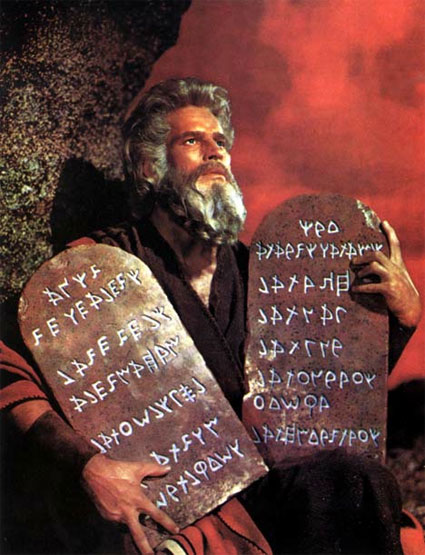Hear, Think, Speak, Sing

Moses listened on the mountain as God spoke. He digested the law, and repeated it to the next generation in Deuteronomy, partly in a song that he taught them.
Moses’ tabernacle was silent. It was misused and dismembered, then reconstructed in the ‘next generation’ as the Tabernacle of David, with music and Gentile singers.
Christ ascended and silently received the New Covenant scroll as a lamb. He opened it upon Israel and the blessings and curses followed. Then He gave part of it to John to bring about the end of the age in the next generation. John listened, and as a son of thunder repeated it as seven thunders, played out in history as seven rejected Temple bowls. And the avenged saints – Jews and Gentiles in the Tabernacle of Greater David – sang in anticipation of the Bridegroom and His permanent Temple, the church.
So, Adam listens silently as God gives him the law. When tested, he repeats his ‘digested’ wisdom to Eve. And she sings the law in response and satan is defeated. Except we know that’s not what happened in the first garden.
So hear, think, speak, sing.
As a ‘priesthood of all believers’, all God’s people now have access to the Holy Place. Yet within that government there are still different roles to fulfill – there are still Chief Priests. Due to the abuse of male authority (exploitation of women) in western culture, we have tried to rectify it with more exploitation. Only God’s model will work, and that is men taking their God-given spiritual responsibilities as husbands, fathers and pastors seriously – self-sacrificial leadership. Men initiate, women respond. In this, we image Christ and His church. ‘Opening the scroll’ is still foremost the responsibility of men, imaging the Bridegroom.
“There are judgesses, queens and prophetesses in the Bible, and though there are not many, nobody seems to be surprised about it. But there are no priestesses. The reason for this is found (as usual) in Genesis 2 and 3. The one thing that is excluded from women is the central liturgical function of imaging the Groom.” James B. Jordan, Judges: God’s War Against Humanism, p. 77-78. Download from www.biblicalhorizons.com
Christian men follow the blind when we should be leading. This begins with taking dominion in our own hearts and homes as the spiritual “prime movers”. As Adam, a man silently receives the law from God, digests it (swallows the scroll), it judges him first (bittersweet—like communion), then he “comes down from the mountain” and shares the light of the law with greater Eve: wife, children, church. The law is then sung in response as liturgy, a song of victory over the crushed enemy, in every family, every church.

























